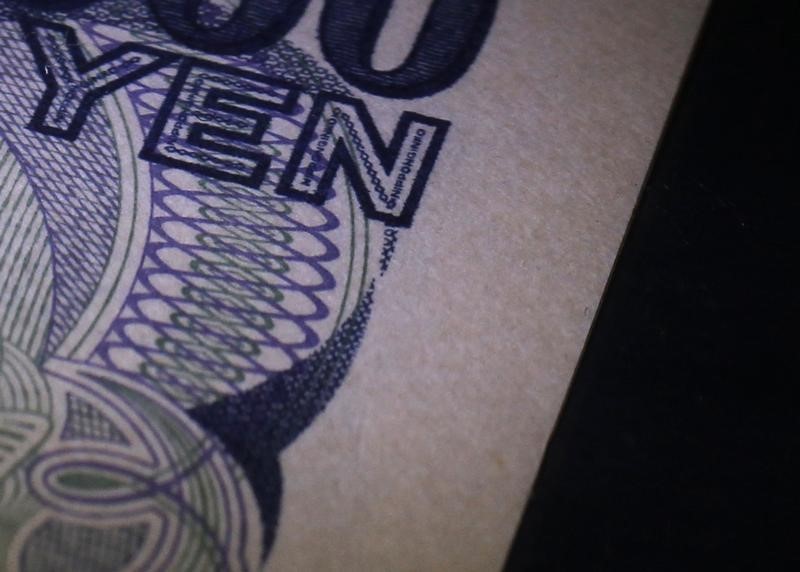* Yen at near 3-month high vs dollar, 9-month high vs euro
* Euro hit by soft euro zone inflation data
* Pound near 9-month low vs dollar on EU referendum worries
By Hideyuki Sano
TOKYO, Jan 6 (Reuters) - The yen vaulted to a near three-month high against the dollar and multi-month highs versus other currencies on Wednesday as investors sought shelter in low-risk assets after weak economic news from China and a possible nuclear test in North Korea.
The yen jumped as much as 0.6 percent to 118.35 to the dollar JPY= , its highest level since Oct. 15. Against the euro, it rose to 127.435 per euro EURJPY=R , its strongest level since April last year.
Yen buying started after China's central bank set the yuan at a much weaker level than Tuesday's close, a move that sparked fresh speculation that Beijing wants a weaker yuan as its economy loses momentum.
That was quickly followed by a closely-watched survey on China's services industries that showed the sector expanded at its slowest pace in 17 months in December.
Hurting already weak risk sentiment was an earthquake that appears to have been man-made near a known nuclear testing site in North Korea, which was detected by several monitoring agencies.
"There are lots of worrying headlines. Our research shows investor sentiment is weak. When sentiment is so weak like this, people don't make fresh investment," said Bart Wakabayashi, chief of forex at State Street.
"It just feels worrying, from the beginning of year."
All of these came after investors started the new year on sober note, following disappointing manufacturing surveys in China and the United States, plunges in Chinese shares and heightened tension in the Middle East following Saudi Arabia's execution of a prominent Shi'ite cleric.
Yen buying was notable against risk-sensitive currencies such as the Australian and the New Zealand dollar.
The Australian dollar fell to a three-month low of 84.30 yen, falling more than 1 percent. The kiwi fell 1.4 percent.
The British pound slipped to a 14-month low of 173.88, erasing all of its gains made after the Bank of Japan's monetary easing in October 2014.
Traders say markets need clearer evidence of solid growth, particularly in the U.S., considered one of the brighter spots in the global economy, to change the mood.
"If the upcoming U.S. job data disappoints investors, risk appetite will not come back for a while," said Takako Masai, head of market research at Shinsei Bank in Tokyo, referring to the closely-watched U.S. data due on Friday.
Wednesday will see surveys on the service sector business sentiment in the United States and major European economies.
Given the service sector is making up for the weakness in the manufacturing sectors in many countries, any disappointment could further undermine investor sentiment.
The European currencies were softer also against the dollar on their own woes.
The euro stood at $1.0766 EUR= , having fallen 0.8 percent the previous day after data showed euro zone core inflation slowed for a second consecutive month in December.
That reinforced expectations the European Central Bank will have to add further monetary stimulus to avert deflation. urn:newsml:reuters.com:*:nL8N14P1BU
Some traders also see news the U.S. Justice Department sued Volkswagen VOWG_p.DE for up to $48 billion for allegedly violating environmental laws as weighing on the euro.
The British pound extended its losses, pressured by the risk of a destabilising referendum, expected later this year, on whether to stay in the European Union.
Having hit a nine-month low of $1.4638 overnight, the unit stood at $1.4659 in early Asian trade.
British Prime Minister David Cameron on Tuesday bowed to pressure to allow government ministers to campaign to leave the European Union in an upcoming referendum, heading off the prospect of multiple resignations from his top team.
The Canadian dollar hit a 12-year low of C$1.4039 per dollar CAD=D4 as oil prices LCOc1 slipped back towards 11-year lows. (Editing by Richard Pullin and Sam Holmes)
